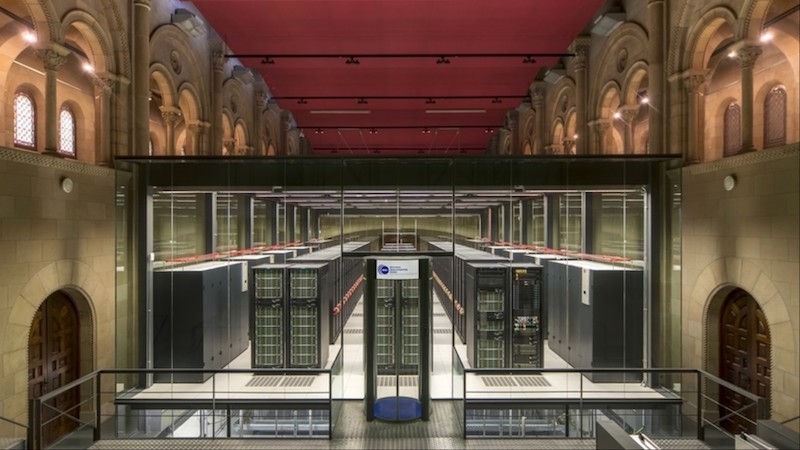-
Remove.bg - Remove the Background of Any Photo

Image: Remove.bg
Remove.bg is a great service that makes it easy for anyone to remove the background of a photo. You can use it with small images for free, and pricing for HD photos seems very fair: you can pay $2 per image, or get a subscription starting at $9 per month.
-
The Maker's Schedule - A Ten Year Retrospective
10 years ago, I was fresh out of college and encountered Paul Graham’s essay about the maker’s schedule, and wrote a response disagreeing with the spirit of the article. While I knew and understood that programmers could be much more productive in one 10 hour chunk than in five 2 hour chunks, I felt like rearranging a business’s operations based on these preferences was going overboard. The typical programmer as described seemed undisciplined, and I wrote that programmers needed to find ways to work around distractions, which are simply a fact of life.
As expected the post got a lot of negative feedback, but it was all very informative. Rather than just telling me to shut up, many people shared their own views and explained where my reasoning might be shortsighted. One person said they would be interested in seeing how I would react to my own post in about 10 years time, so here I am.
-
Mental Training, and Learning to Swim
During my last year at university, I decided to learn to swim. I was reasonably confident in my ability to stay afloat in deep water and not die, but it wasn’t what you could call swimming. Luckily, two of my close friends were excellent swimmers and they agreed to work with me in the mornings before class.
As an aside, I did take swimming lessons on and off for a few years when I was a kid, but apparently I retained nothing from those classes. Maybe I was just a terrible swimmer the entire time? Possibly related, I have very few memories from my elementary and middle school years, so I have a suspicion that I didn’t do a whole lot of thinking when I was a kid. In any case, I was essentially a total beginner to swimming when we started. I knew that you kicked your legs and paddled with your arms to go forward, but that was about it.
-
One Cut of the Dead (カメラを止めるな!)
One Cut of the Dead (カメラを止めるな!) is a low budget Japanese zombie movie that became hugely popular here. I just watched it over the weekend and it was wonderful. The writing is very funny and very clever, and when it was over I found myself immediately wanting to watch it a second time.
From Wikipedia:
One Cut of the Dead was made for 3 million Japanese Yen (approximately $25,000 in US Dollars at the time) with a cast of unknown actors. It was made in eight days after director Shinichiro Ueda participated in workshops for actors and filmmakers at the Enbu Seminar drama school in Tokyo
One Cut of the Dead opened in Japan in an 84-seat Tokyo art house theater with an initial theatrical run of six days. It was showing at around 200 screens in Japan by March 2018 where it had officially grossed 800 million yen ($7.3 million)
-
The World's Most Beautiful Data Center

Image: Barcelona Supercomputing Center
The Torre Girona Chapel was deconsecrated in the 70s, and now houses the MareNostrum supercomputer.
“We were in need of hundreds of square meters without columns and the capacity to support 44.5 tons of weight,” Maspoch told me in an email. “At the time there was not much available space at the university and the only room that satisfied our requirements was the Torre Girona chapel. We did not doubt it for a moment and we installed a supercomputer in it. ”
-
Automating Materials Science with Machine Learning
A robot arm dips a pipette into a dish and transfers a tiny amount of bright liquid into one of many receptacles sitting in front of another machine. When all the samples are ready, the second machine tests their optical properties, and the results are fed to a computer that controls the arm. Software analyzes the results of these experiments, formulates a few hypotheses, and then starts the process over again. Humans are barely required.
The setup, developed by a startup called Kebotix, hints at how machine learning and robotic automation may be poised to revolutionize materials science in coming years. The company believes it may find new compounds that could, among other things, absorb pollution, combat drug-resistant fungal infections, and serve as more efficient optoelectronic components.
This sounds like a perfect application for machine learning. It’s a great combination of smart design and brute force effort.
-
Spaghetti Carbonara
For a long time I thought I didn’t like carbonara because the few I tried were too creamy and eggy. Recently I gave it another try because the picture in the menu looked delicious. It was excellent, and I decided I wanted to learn how to make it myself. I needed some practice before I felt comfortable with the timings, but overall it’s a pretty simple recipe that wasn’t hard to learn.

-
Lucid Dreaming
I was consistently able to have lucid dreams when I was in high school. Partway through a dream, I would realize that I was dreaming and could then control the rest of the dream to a small extent. As I’ve grown older though, this has become less and less common. Maybe age has changed something about my brain.
Naturally, I’ve been interested in lucid dreaming and have read a lot about it. Tim Ferriss has a fascinating beginner’s guide on his blog. Different people seem to have different approaches and theories, so I thought I would write about my own experiences.
-
Universal Basic Income
I wonder sometimes about what a better society than ours would be. What should our goals be as we try to improve?
As our society improves and we get more efficient, I like to imagine a future where we don’t have to work as much. That seems like a nice thing to aim for. Universal basic income (UBI) seems like one possible solution. If we could afford to give everybody a fixed minimal income, people could work less and still have a basic amount of wealth needed to survive. But I’m not yet convinced whether UBI is the correct answer to describe an ideal future.
-
The Value Promise of Subscription Games
I had been playing World of Warcraft on and off for about 10 years, but I decided to stop playing again about a year ago. I quit because of a series of changes that were made to the game, and it motivated me to think about why I reacted that way as a paying customer.
A series of recent changes made to WoW were designed to motivate players to play by ensuring they always gain something and grow a little every time they play. Unfortunately, a side effect of these changes was an increased pressure to spend many hours playing. This made me feel like my limited time spent in the game was less valuable, and is what ultimately led to me quitting the game.